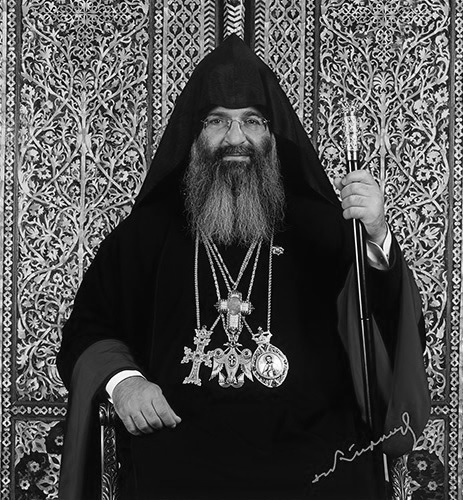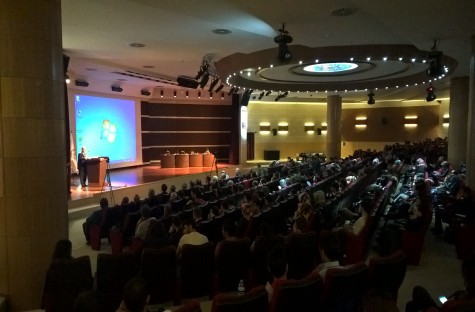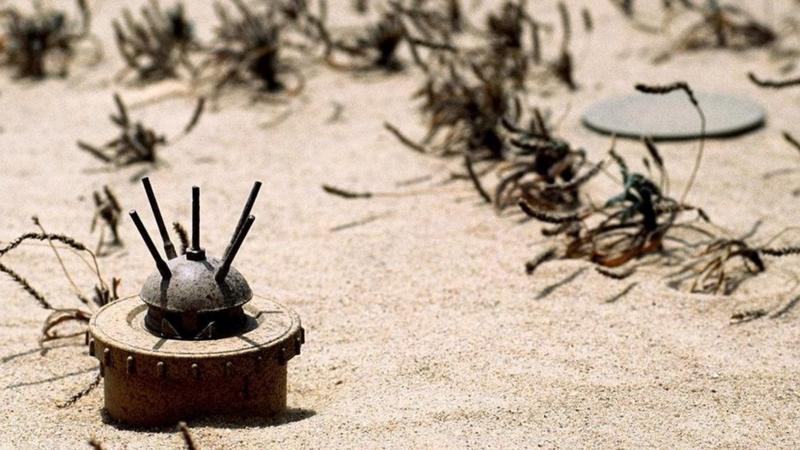
The decision to open Hagia Sophia for worship as a mosque has elicited various reactions from around the world. The ones we would like to draw your attention are the statements of the World Council of Churches and the spiritual leader of the Armenian Catholicosate of Cilicia (located in Antelias/Lebanon), Aram I.
The World Council of Churches (WCC) is an international organization consisting of various Christian churches and church associations from around the world. The WCC introduces itself as a venue for the promotion of solidarity and cooperation among Christian groups.[1] In terms of its field of work, WCC is the largest Christian organization in the world.
WCC Secretary-General Ioan Sauca has stated in his letter addressed to President of Turkey Recep Tayyip Erdoğan that “Hagia Sophia has been a powerful expression of the Republic of Turkey’s commitment to secularism and inclusion and of its desire to leave behind the conflicts of the past.” Sauca has argued, however, that the decision to open Hagia Sophia for worship as a mosque is “a sign of exclusion and division.”[2] Regarding the re-opening of such an emblematic place as Hagia Sophia for worship as a mosque, Sauca has claimed that it “will inevitably create uncertainties, suspicions and mistrust, undermining all our efforts to bring people of different faiths together at the table of dialogue and cooperation.”[3]
Despite Sauca's hope for dialogue as indicated in his statement, in a report we had previously published, we had discussed that WCC has been instrumentalized in propaganda activities related to Armenian genocide allegations and that the organization has been carrying out various activities since 1983 for the recognition and promotion of the alleged genocide. We had pointed out that the biased approach towards Turkey in the reports published and the activities in this regard carried out by WCC, which called on the United Nations in 1983 to recognize the alleged genocide, have been shaped by religious identity.[4] In this context, after the Armenian Catholicos of Etchmiadzin Karekin II,[5] who is known for his hostility towards Turkey, was elected as one of the 8 presidents of WCC; it was seen that the WCC organized activities such as its decision to take part in the 100th anniversary of the so-called Armenian genocide and to organize activities such as the arrangement of an ecumenical prayer ritual to commemorate the victims of alleged genocide.
Regarding the Hagia Sophia decision, the Armenian Catholicos of Cilicia (Antelias) Aram I, who is known for being even more hostile towards Turkey than Karekin II, made statements on this issue about two weeks ago. In his statement addressed to political and religious leaders, Aram I claimed that soon after the alleged genocide, Turkey confiscated thousands of Armenian Churches and turned them into bars, coffee shops and public parks, and that the “genocide” continues by the same “genocidal authorities” in the full view of the world.[6]
It can be gathered that the prejudice-fueled activities of the WCC stem from the unquestioned acceptance of the genocide thesis about the 1915 Events simply because the Armenians are Christians. Similarly, the statements of Aram I, who is even more hostile towards Turkey than Karekin II, should be evaluated as part of the propaganda that has been carried out for years for the genocide thesis. The behavior of these actors reveals that the genocide thesis is based on religious factors rather than historical and legal arguments.
It should be added that not all Christians have similar biased attitudes regarding the decision to open Hagia Sophia for worship. For example, Felix Körner, one of Germany's well-known Jesuit priests, made statements in this regard that “… What could make you sad when you think that a museum that was no longer being used as a temple has again become a place of worship now? This would not distress someone who is religious, it can only make you happy. ”[7]
*Picture: logo of the World Council of Churches (left), Armenian Catholicos of Cilicia Aram I (right)
[1] Mehmet Oğuzhan Tulun, “What is the World Council of Churches?”, Avrasya İncelemeleri Merkezi (AVİM), Rapor No: 5, March 5, 2014, https://www.avim.org.tr/images/uploads/Rapor/RAPOR-5.pdf
[2] “WCC letter to President Erdogan to keep Hagia Sophia as the shared heritage of humanity,” World Council of Churches, July 11, 2020, https://www.oikoumene.org/en/press-centre/news/wcc-letter-to-president-erdogan-to-keep-hagia-sophia-as-the-shared-heritage-of-humanity
[3] “WCC letter to President Erdogan to keep Hagia Sophia as the shared heritage of humanity.”
[4] Tulun, “What is the World Council of Churches?”
[5] The spiritual leader (Catholicos) of the Armenian Catholicosate of Cilicia, one of the four administrative centers of the Armenian Apostolic Church, is considered to be the most senior amongst the spiritual leaders of the four centers. In this framework, the Armenian Catholicos of Cilicia is viewed as the spiritual leader of all Orthodox Armenians.
[6] Siranush Ghazanchyan, “His Holiness Aram I reminds about confiscation of Armenian Churches by Turkey after the genocide,” Public Radio of Armenia, July 12, 2020, https://en.armradio.am/2020/07/12/his-holiness-aram-i-reminds-about-confiscation-of-armenian-churches-by-turkey-after-the-genocide/
[7] “Alman papazdan Ayasofya tartışmalarına iki yüzlülük eleştirisi,” NTV, July 19, 2020, https://www.ntv.com.tr/dunya/alman-papazdan-ayasofya-tartismalarina-iki-yuzluluk-elestirisi,ugoHvvDg-0G_4wuZgO0MsQ
© 2009-2025 Center for Eurasian Studies (AVİM) All Rights Reserved
No comments yet.
-
 GREEK INDEPENDENCE DAY AND THE PREVAILING DOUBLE STANDARD OF THE WEST
GREEK INDEPENDENCE DAY AND THE PREVAILING DOUBLE STANDARD OF THE WEST
AVİM 16.04.2025 -
 PRESIDENT SARGSYAN’S RESPONSE TO THE INVITATION FOR THE COMMEMORATION CEREMONIES OF THE 100TH ANNIVERSARY OF THE BATTLE OF GALLIPOLI
PRESIDENT SARGSYAN’S RESPONSE TO THE INVITATION FOR THE COMMEMORATION CEREMONIES OF THE 100TH ANNIVERSARY OF THE BATTLE OF GALLIPOLI
AVİM 20.01.2015 -
 BEDROS ŞİRİNOĞLU IS ON THE TARGET
BEDROS ŞİRİNOĞLU IS ON THE TARGET
AVİM 28.09.2018 -
 THE PASSING AWAY OF THE ARMENIAN PATRIARCH OF ISTANBUL MESROP II AND THE NEW PATRIARCH ELECTION PROCESS
THE PASSING AWAY OF THE ARMENIAN PATRIARCH OF ISTANBUL MESROP II AND THE NEW PATRIARCH ELECTION PROCESS
AVİM 27.03.2019 -
 THE SECOND INTERNATIONAL SYMPOSIUM ON TURKISH-ARMENIAN RELATIONS AND GREAT POWERS ORGANIZED BY ATATÜRK UNIVERSITY KICKED OFF IN ERZURUM
THE SECOND INTERNATIONAL SYMPOSIUM ON TURKISH-ARMENIAN RELATIONS AND GREAT POWERS ORGANIZED BY ATATÜRK UNIVERSITY KICKED OFF IN ERZURUM
AVİM 05.05.2015
-
 THE ISSUE OF MINE MAPS
THE ISSUE OF MINE MAPS
Tuğçe TECİMER 21.02.2024 -
FORTRESS EUROPE CLOSES RANKS
Alev KILIÇ 21.02.2013 -
ARMENIA SUSPENDS THE RATIFICATION OF THE PROTOCOLS
Ömer Engin LÜTEM 22.04.2010 -
SARKOZY IS IN ARMENIA I
Ömer Engin LÜTEM 15.10.2011 -
 THE CASE OF SENATOR MENENDEZ AND THE NATURE OF GENOCIDE RESOLUTIONS
THE CASE OF SENATOR MENENDEZ AND THE NATURE OF GENOCIDE RESOLUTIONS
AVİM 11.09.2017
-
25.01.2016
THE ARMENIAN QUESTION - BASIC KNOWLEDGE AND DOCUMENTATION -
12.06.2024
THE TRUTH WILL OUT -
27.03.2023
RADİKAL ERMENİ UNSURLARCA GERÇEKLEŞTİRİLEN MEZALİMLER VE VANDALİZM -
17.03.2023
PATRIOTISM PERVERTED -
23.02.2023
MEN ARE LIKE THAT -
03.02.2023
BAKÜ-TİFLİS-CEYHAN BORU HATTININ YAŞANAN TARİHİ -
16.12.2022
INTERNATIONAL SCHOLARS ON THE EVENTS OF 1915 -
07.12.2022
FAKE PHOTOS AND THE ARMENIAN PROPAGANDA -
07.12.2022
ERMENİ PROPAGANDASI VE SAHTE RESİMLER -
01.01.2022
A Letter From Japan - Strategically Mum: The Silence of the Armenians -
01.01.2022
Japonya'dan Bir Mektup - Stratejik Suskunluk: Ermenilerin Sessizliği -
03.06.2020
Anastas Mikoyan: Confessions of an Armenian Bolshevik -
08.04.2020
Sovyet Sonrası Ukrayna’da Devlet, Toplum ve Siyaset - Değişen Dinamikler, Dönüşen Kimlikler -
12.06.2018
Ermeni Sorunuyla İlgili İngiliz Belgeleri (1912-1923) - British Documents on Armenian Question (1912-1923) -
02.12.2016
Turkish-Russian Academics: A Historical Study on the Caucasus -
01.07.2016
Gürcistan'daki Müslüman Topluluklar: Azınlık Hakları, Kimlik, Siyaset -
10.03.2016
Armenian Diaspora: Diaspora, State and the Imagination of the Republic of Armenia -
24.01.2016
ERMENİ SORUNU - TEMEL BİLGİ VE BELGELER (2. BASKI)
-
AVİM Conference Hall 24.01.2023
CONFERENCE TITLED “HUNGARY’S PERSPECTIVES ON THE TURKIC WORLD"









